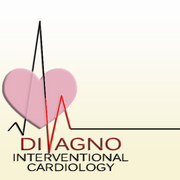3 Ways to Lower Your Resting Heart Rate

For the average adult, a resting heart rate of 60 to 100 beats per minute is considered normal. When it creeps above that range, however, you may be putting your cardiovascular health in danger. In fact, DiVagno Interventional Cardiology, MD, PA, in Rochelle Park, NJ, explains that a high resting heart rate—a condition known as tachycardia—is often the precursor to a heart attack and is associated with a greater risk of death. Fortunately, there are several ways to normalize your rate.
Here, their experts share a few strategies to protect your body and reduce the risk of a heart attack:
- Routine Fitness: It may seem counterintuitive, but one way to lower your resting heart rate is to increase it through exercise. The American Heart Association recommends a maximum active heart rate that is your age subtracted from 220. This temporary increase strengthens your heart and, in turn, allows it to pump blood more efficiently when you’re at rest.
 Relaxation: When you’re under constant stress or anxiety, your body releases adrenaline, a hormone that increases your heart rate. As such, you may find that adequate sleep, deep breathing, meditation, and massages are all effective ways to beat tension.
Relaxation: When you’re under constant stress or anxiety, your body releases adrenaline, a hormone that increases your heart rate. As such, you may find that adequate sleep, deep breathing, meditation, and massages are all effective ways to beat tension. - Dietary Changes: Obesity increases the risk of deadly heart attacks. Follow a healthy, low-sugar diet to shed excess pounds. Fish is one of the best foods to add to your meals, as it contains omega-3 fatty acids that improve heart muscle contraction. Eat more fiber, vegetables, and potassium-rich foods, while avoiding harmful ingredients, such as trans fats and sodium.
While these tactics help lower a high resting heart rate, it is important to communicate your concerns with a trusted physician. In some cases, your tachycardia may be linked to a condition or requires a prescription medication treatment.
For doctors who specialize in heart health, turn to the team at DiVagno Interventional Cardiology MD, PA. Equipped with advanced technology and a well-trained staff, this cardiac care center treats a variety of conditions, including tachycardia, and high cholesterol and blood pressure. To find out how they can help you prevent a heart attack, call (201) 845-3535 today to schedule an appointment. You can also learn more about them online.
About the Business


